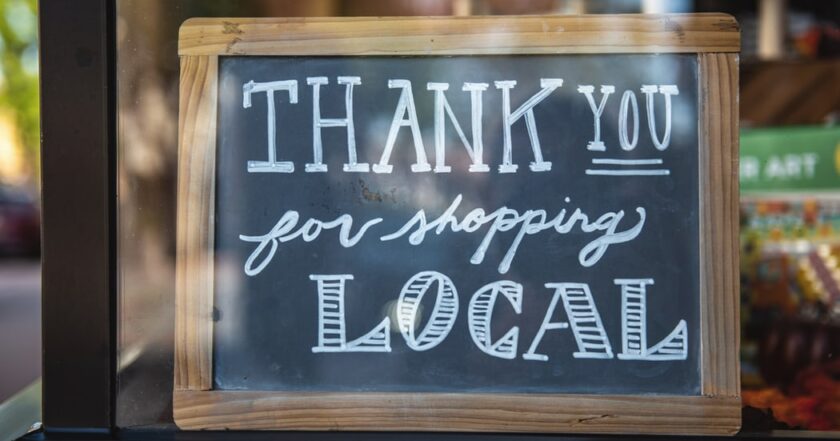9 solutions for small businesses: from loan to subscription
Cross-promotion, library assistance, and tombstones in shop windows are interesting ways to support micro, small and medium-sized businesses from around the world.

Photo Unsplash
The coronavirus pandemic has shaken businesses of all levels, but small businesses have become the most sensitive to its challenges, especially those working in tourism, restaurant and hotel business, entertainment, events, and consumer services. Not only in Ukraine, but all over the planet, small businesses found themselves in an economic activity slowdown and total uncertainty. The result of the forced downtime was a tremendous loss of income for entrepreneurs, and some couldn't stay afloat and simply ceased operations.
Micro, small and medium-sized enterprises (MSMEs) are the backbone of the global economy, accounting for two-thirds of employees worldwide and 80% to 90% of employment in low-income countries. To help small businesses overcome the coronavirus crisis with minimal losses, governments in developed countries have begun to implement support programs.
State "anti-shock therapies" vary, but they're based on similar methods for providing additional financial assistance, preventing unemployment, reducing tax pressures, and so on. The measures in the anti-crisis packages include direct support of the population and business, tax benefits, tax holidays, and other tax incentives, as well as a significant increase in government guarantee limits.
The Ukrainian state also supposedly didn't leave its small entrepreneurs to chance. During the pandemic year, the Government financed UAH 22.7 billion under the 5-7-9 program and UAH 4.7 billion under quarantine programs. Three new business support programs were implemented during the strict quarantine (assistance to sole proprietors and employees in the amount of UAH 8,000, assistance to employers, compensation of single social security tax), the Ministry of Economy reports. The implemented measures helped only partially, because, for Ukraine, 2020 turned out to be too difficult and contradictory, and the applied directions and measures of social and economic policy weren't always adequate to the risks and challenges.
Late last year, the European Business Association conducted a survey of small business sentiment to find out what thoughts and feelings it will start 2021 with. In the entire history of the survey since 2017, the results seemed the most pessimistic: not only the mood of entrepreneurs deteriorated but also expectations for the next six months. According to the vast majority of small business owners, UAH 8,000 couldn't compensate for losses due to quarantine. 80% of respondents consider the current economic situation unfavorable for doing business. The main reasons for this are the population's low purchasing power, the impact of quarantine restrictions, the tax burden, and fiscal pressure. Only 14% of entrepreneurs wrote that they didn't notice the impact of coronavirus on their activities.
However, experts believe that the smaller size of micro and small enterprises allows them to be more flexible and adapt more quickly to the new conditions created by COVID-19. They can not only help overcome the economic crisis but also contribute to a strong and sustainable recovery. Conditions for rapid adaptation of small business mean additional and extended government programs, joint projects with more stable big business, and, of course, comprehensive support from the population as the main consumer of goods and services offered by MSMEs. Rubryka has collected 9 interesting solutions designed to help small businesses from around the world and compiled instructions on how we can help Ukrainian entrepreneurs right now.
This publication is available in Ukrainian and Russian. The English translation hasn’t been produced yet. Support us to make the translation faster - follow the link for instructions


















































